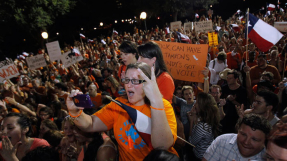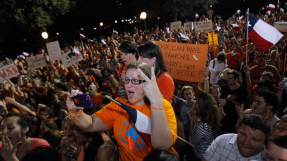A Texas law that seeks to limit abortions appears to have backfired as many women from the state are now resorting to getting rid of their pregnancies in their own homes.
According to NBC News, a new study conducted by the Texas Policy Evaluation Project showed that poor women suffered mostly from the Texas Abortion Law, which took effect in 2013. The law led to the number of clinical procedures conducted in the state to go down.
"Poverty, limited resources, and local facility closures limited women's ability to obtain abortion care in a clinic setting and were key factors in deciding to attempt abortion self-induction," the study revealed.
Around 100,000 to 240,000 women aged 18 to 49 in Texas have already tried to undergo abortion procedures at home since the law took effect. They allegedly used herbs, teas, and medications obtained in Mexico without prescription in order to help get rid of their babies.
The study was conducted by researchers coming from the University of Texas Population Research Center, Ibis Reproductive Health, the University of Alabama-Birmingham, and the University of California at San Francisco.
Amy Hagstrom Miller, who is the chief executive of Whole Woman's Health, said in a statement on Tuesday that the Texas law had its repercussions, so they will be challenging the law in court.
"By forcing clinics to close, Texas legislators have multiplied the barriers women face when they need an abortion," she said. "Texas women are forced to go to multiple and unnecessary visits at clinics that are now farther away, take more days off of work, losing income, find childcare, and arrange and pay for transportation for hundreds of miles."
On the other hand, the number of abortions in Texas has declined by 13 percent within just six months after the law took effect. The clinics of Planned Parenthood and Whole Women's Health had a combined number of 42 before the law; now, they only have 19.

















